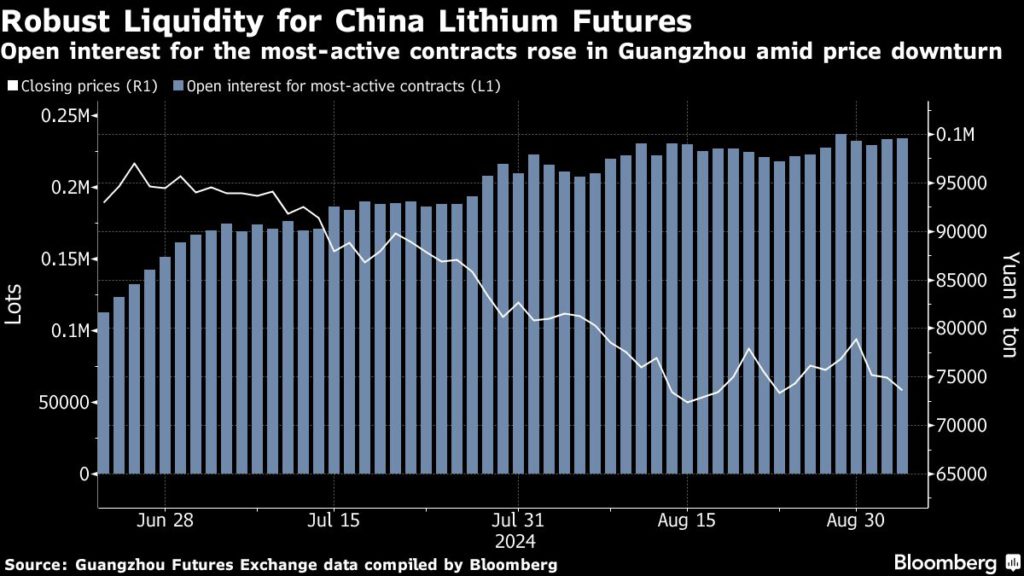
Chinese lithium processors are ratcheting up hedging to offset wild swings in the battery metal, a sign that local futures launched around a year ago are gaining traction.
Several companies have unveiled their hedging exposure via lithium carbonate futures during the recent earnings season, including Ganfeng Lithium Group Co. and Sichuan Yahua Industrial Group Co. The contracts on the Guangzhou Futures Exchange were the first of their kind in China, and trading is already more active than for lithium futures in established commodities hubs like London, Chicago and Singapore.
The contracts’ first year has not been without drama — trading limits had to be raised a couple of times late last year to cope with price spikes — but the persistent downturn in prices for lithium carbonate, a semi-processed form of the electric vehicle battery ingredient, has helped juice volumes. Spot prices are down almost 90% from a peak in late 2022, as a supply glut coincides a slower-than-expected growth in EV demand.

“The pickup in hedging activity is mainly because of the prolonged price slump,” said Zhang Weixin, an analyst at China Futures Co. “As the futures market in Guangzhou became more mature and stable, producers are finding hedging effective in countering the downturn risks.”
The trading volume of lithium futures in Guangzhou was more than nine times higher in July than when they were launched a year earlier. The robust activity is helping to achieve China’s goal of making the country a price-maker rather than taker in commodities essential to the energy transition. The exchange also hosts trading of futures for industrial silicon, and has plans to list contracts for lithium hydroxide, palladium and platinum.
China accounts for about 70% of the world’s lithium refining capacity, data from BloombergNEF show, but the country imported almost 60% of its raw lithium needs last year, according to the China Nonferrous Metals Industry Association. That makes companies there more vulnerable to price volatility and geopolitical risks.
Ganfeng said it put 38 million yuan ($5.4 million) into futures trading in the first half ,and made a profit of 3.43 million yuan. Sichuan Yahua is among firms that started hedging this year, saying the move was “to control the impact of product prices on company profits.”
Another major Chinese lithium producer, Tianqi Lithium Corp., said it hadn’t engaged in hedging yet, but is setting up a team to do so. Tianqi wants to avoid risks caused by price fluctuations on its operations by “effectively combining futures and spot transactions,” it said.
(By Annie Lee)
Comments